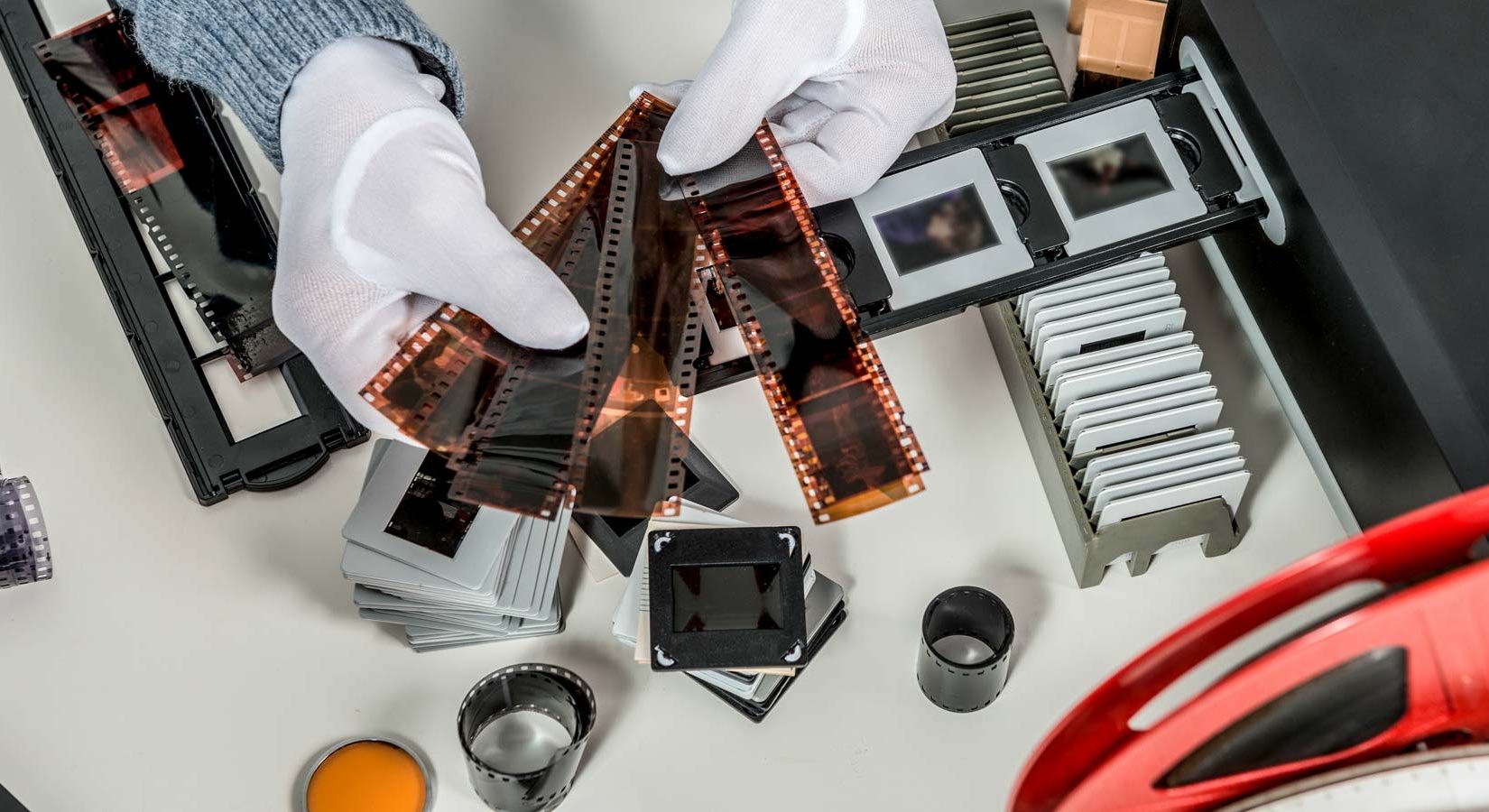Although digital cameras have taken over the market because they integrate more advanced technology, some people are still dedicated and loyal to analog photography.
To keep these photographs, however, you have to digitize films using a medium format scanner. This helps you utilize them better by sharing them to social media platforms, creating bigger versions to hang around your house, or simply to archive them.
In this article, I’ll list the best medium format film scanners that you can use to turn your analog photographs into digital memories.
List of the Best Medium Format Film Scanners:
- Epson Perfection V600 – Best Overall Scanner for Medium Format Films
- Epson Perfection V800 – Best 120 Film Scanner for Professional Use
- Epson Perfection V850 Pro – Best Medium Format Scanner for Color Accuracy
- Epson Perfection V370 – Affordable Medium Format Film Scanner
- Canon CanoScan 8800F – Mid-Range Film Scanner
Comparison Table:
| Scanner | Resolution | 120 Film Adapter |
| Epson Perfection V600 | 6400 x 9600 DPI | Available |
| Epson Perfection V800 | 6400 x 9600 DPI | Available |
| Epson Perfection V850 Pro | 6400 x 9600 DPI | Available |
| Epson Perfection V370 | 4800 x 9600 DPI | Purchased Separately |
| Canon CanoScan 8800F | 4800 x 9600 DPI | Available |
The 5 Best Medium Format Film Scanners in 2020
1. Epson Perfection V600 – Best Scanner for Medium Format Films Overall
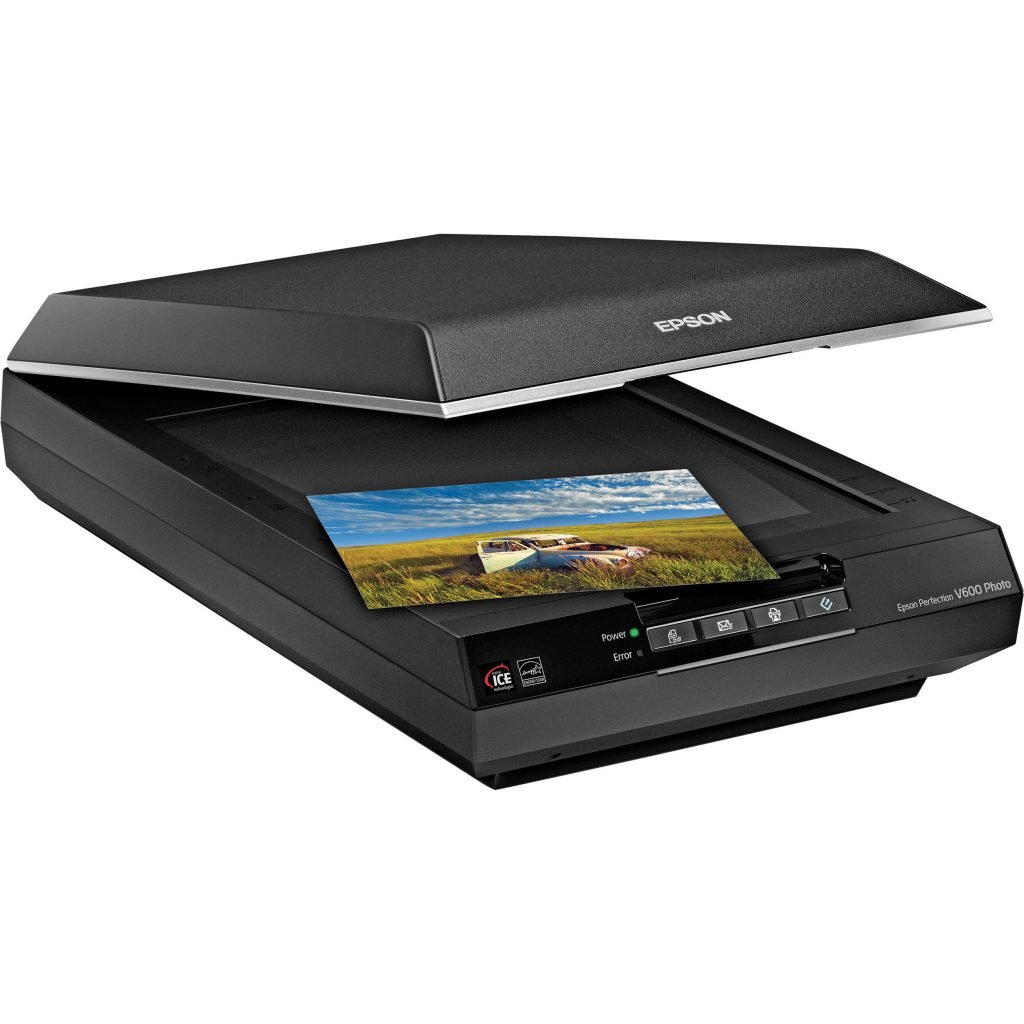
The Epson Perfection V600 is a great medium format scanner that works for both negative slides and scanning photographs. It suits both home and office use, or even professional use in photo studios. This is because it gives you the freedom to choose a fully automatic operation or have full manual control over your tweaks and adjustments.
It’s reasonably priced and offers all the essential features you’ll need on a slide scanner. This includes a high optical DPI of 6400 x 9600 and a built-in transparency unit that can handle medium format films, slides, and negatives of up to 6 x 22-cm.
Moreover, it’s equipped with a great Dmax of 3.4 and a color depth of 48 bits as opposed to the 24-bit average on most affordable scanners.
It also comes with multiple photo restoration and film scanning features, most importantly of which is the Digital ICE technology. This means you can restore old and delicate photos in the best quality possible with no tears or dust.
All-in-all, when it comes to scanning slides, the Perfection V600 is one of the best options out there. It’s quite easy to set up, you just plug it in and start scanning. It’s also compatible with both Windows PC and Mac and comes with Adobe Photoshop Elements along with another photo editing application called Arcsoft Photostudio that provides a complete restoration for photos with color imperfections. موقع البوكر
Pros:
- Great scan quality
- Amazing ability to scan photos and film negatives
Cons:
- Operation speed is a bit slow
- No native text recognition
- Software isn’t great
Bottom Line
The Epson Perfection V600 is an amazing choice if you’re looking for highly accurate photo scans but don’t mind losing some of the quality.
2. Epson Perfection V800 – Best 120mm Film Scanner for Professional Use
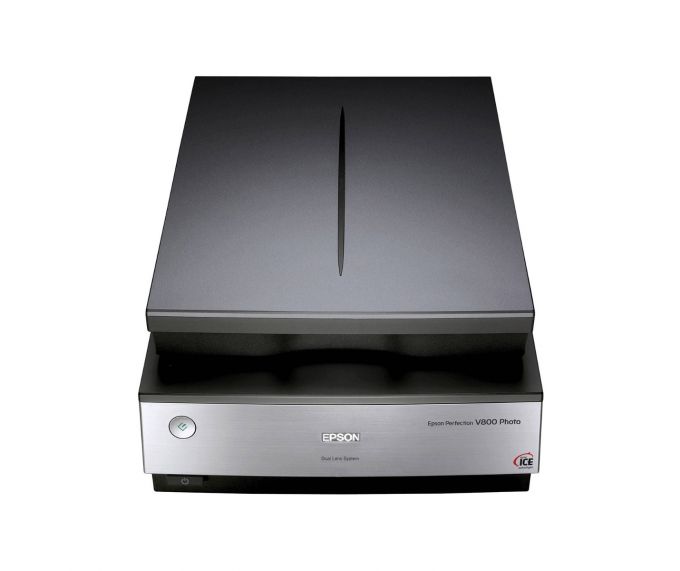



A more advanced option in the Epson Perfection series is the Perfection V800. It’s pretty sturdy and can accommodate twelve 35mm mounted slides: three 35mm film strips, a medium format strip of up to 6 x 20 cm, and one 4 x 5″ frame. Although it’s a flatbed scanner, it doubles excellently as a film scanner.
While it shares the same resolution of 6400 x 9600 DPI as the V600, it beats it in terms of Dmax as it reaches a whopping 4.0 and comes with a dual-lens system.
The dual-lens system offers two lenses, one with a 4800 DPI optical resolution and the other with a much higher 6400 DPI. The scanner automatically chooses the lens that provides better results.
Moreover, the V800 can scan negatives and slides from 35mm and up to 8 x 10″ in size. It’s also equipped with Digital ICE technology to remove any dust or specks from the scanned images. مواقع المراهنات الرياضية
It’s also equipped with an amazing software called LaserSoft Imaging SilverFast SE that allows you to adjust the image aspects as well as control highlights and shadows. This means you can sharpen, descreen, descale, and tweak the gradations of your photos.
If you’re a professional who’s looking for the perfect colors, clear shadow details, and an excellent tonal range, you’re going to love what the V800 has to offer.
Pros:
- High-quality scans for photographic films, prints, and slides
- Scan modes range from fully manual to fully automatic
Cons:
- Isn’t equipped with any photo editing program or applications
Bottom Line
The Epson Perfection V800 delivers top-tier scans of film (both positive and negative) and photographic prints as large as 8 x 10″. It’s one of the best options if you’re going to do professional work.
3. Epson Perfection V850 Pro – Best Medium Format Scanner for Color Accuracy
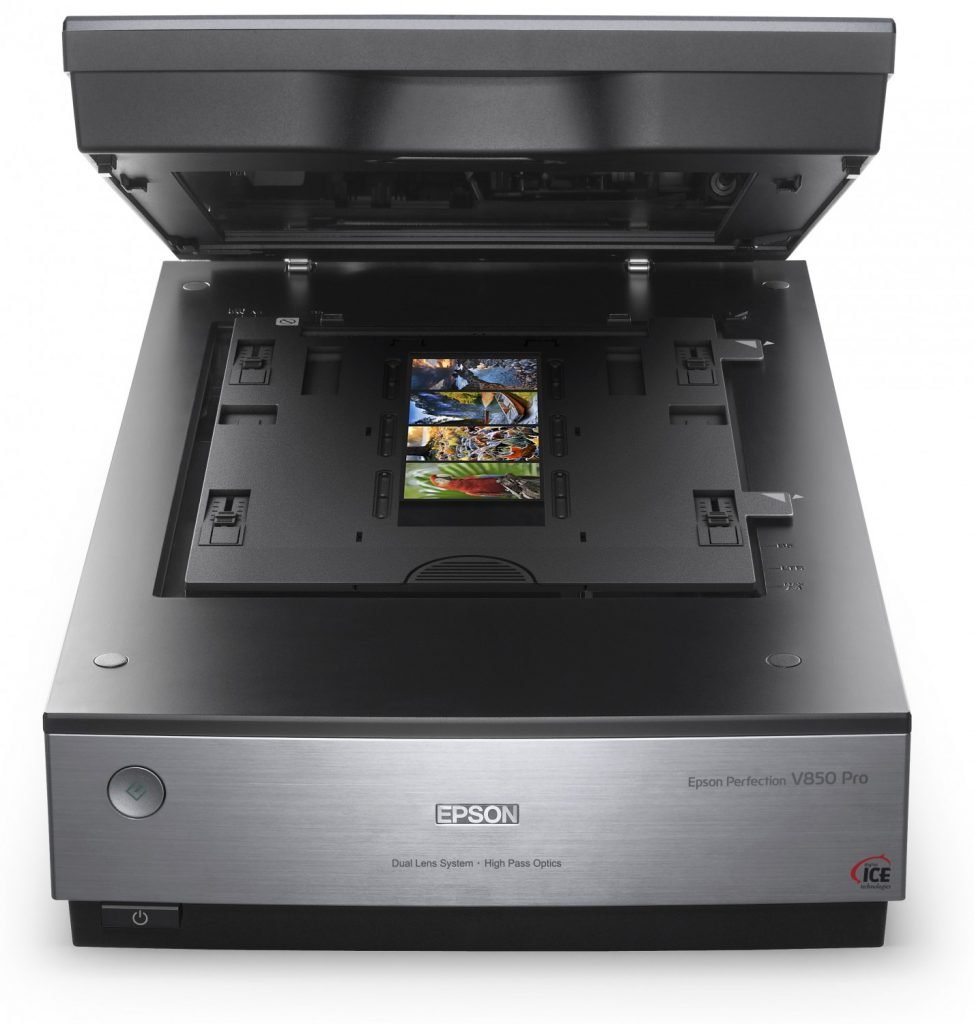



The V850 Pro takes it up a notch from the V800. It’s equipped with 4.0 Dmax and a dual-lens system like the V800’s, but it creates a much higher image quality as it also has “High Pass Optics” technology. It’s ideal for professional photographers and enthusiasts.
You’ll get the best-scanned images that a flatbed scanner can produce. Additionally, it offers twice as many film holders, so you can use it to increase your productivity.
Namely, it comes with two sets of four film holders that can be used for a wide range of film formats. It can accommodate 35mm slides, 35mm film strips, 220 film, and 120 film formats up to 6 x 20 cm.
All you have to do is place the slides or film in the specialized holder and adjust it correctly on the flatbed. You can use the Film Area Guide to get help as to how to position the film properly.
Of course, like the other scanners in the Perfection series, it’s equipped with Digital ICE technology to remove any scratches or dust from both film and prints. It also has a scanning speed of one frame in 30 seconds at 2400 PPI. It’s also equipped with advanced optics that apply high-resolution mirror and anti-reflective coatings that result in as little distortion as possible on your photo scans.
This is a pretty remarkable speed compared to other scanners as it allows you to scan multiple slides in batches as well as negatives, medium format films, as well as large-format films thanks to the two sets of film holders included with the scanner.
Furthermore, it’s equipped with an “X-Rite i1Scanner” color accuracy software that enables you to calibrate the colors according to what you see suitable.
While it does cost a bit more than the V800, its additional features make it a worthy investment for medium format film scanning for professionals.
Pros:
- Superb scanning quality for both photographic prints and films
- Color-calibration target and software included
- Accommodates various film sizes
- An effective dual-lens system with High Pass Optics
Cons:
- Color-calibration software is a little hard to use
Bottom Line
The Epson Perfection V850 Pro offers top-notch scanning quality for both film and photographic prints of up to 8 x 10″ in size. If you’re looking for professional-grade scanning, you won’t find anything better on the market.
4. Epson Perfection V370 – Affordable Medium Format Film Scanner




The Epson Perfection V370’s quality comes at a lower resolution than other scanners in the Perfection series with only 4800 x 9600 DPI. Its Dmax is only 3.2, which isn’t that high either. gra w automaty online But then again, it’s a pretty affordable medium format scanner, so it’s great for hobbyists and people who are only looking to make archives of their analog photographs.
You should note that the V370 only comes with a 35mm slide holder, so if you want to scan 120 medium format films, you’ll need to purchase an Epson holder for them separately.
Additionally, it doesn’t have Epson’s proprietary Digital ICE technology, which is a pretty big downside as this means it won’t get rid of dust and scratches from your scans. zaklady bukmacherskie pl
It does offer other features like scanning directly to the cloud and stitching software that enables you to scan larger images in pieces.
Finally, this scanner is pretty easy to use with little to no warm up time. It’s the ideal affordable scanner for medium format films.
Pros:
- Practical film shooting capabilities
- Amazing for scanning negatives
- Affordable price
- Versatile functionality
- Stitching technology for scanning large images
Cons:
- Not the best longevity
- Lacks Digital ICE technology
- Lower quality than the competition
Bottom Line
While the Epson Perfection V370 doesn’t produce the best quality scans like other options on the list, it’s a pretty affordable option that allows you to archive your analog pictures.
5. Canon CanoScan 8800F – Mid-Range Film Scanner
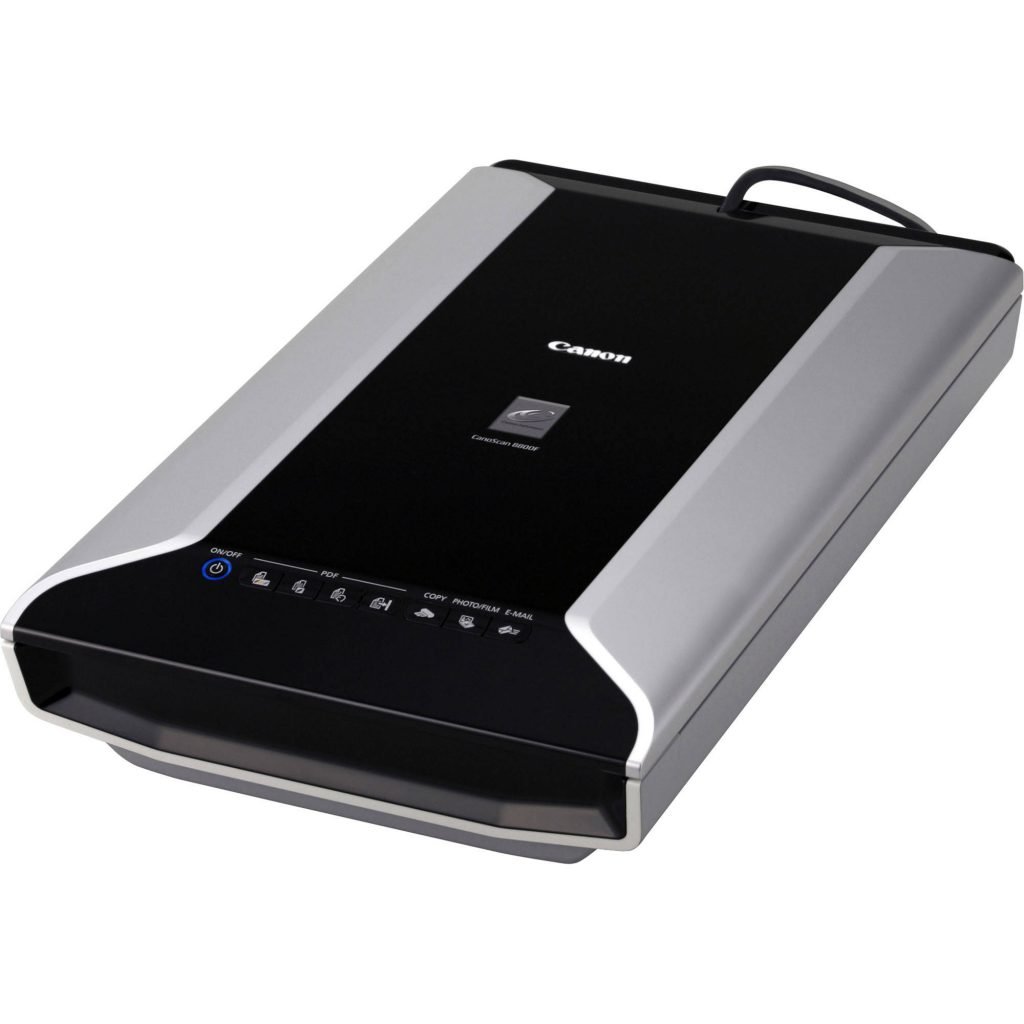



The Canon CanoScan 8800F is a famous film scanner, especially that it’s one of the few options that aren’t an Epson scanner.
It’s pretty effective and fast that it enables you to batch scan up to three 120 medium format films. However, it doesn’t have features that are advanced as those found on the Epson Perfection V800.
Like the V375, its resolution is only 4800 x 9600 DPI. But the interpolated one can go up to 19,200 x 19,200 DPI.
Plus, with the LED light source technology, you’re going to be able to scan right away with no need to warm up for the bright luminance.
It also uses Fare technology that automatically fixes and improves the photos you can scan during the process.
Finally, the interface of the printer is pretty intuitive and easy to use, so you won’t struggle with any know-how, whether in terms of operating the scanner or fixing up the digitized images.
Pros:
- LED light source
- Backlight correction
- High-quality scans
Cons:
- Subpar scratch removal
- Limited number of slides to scan
Bottom Line
If you’re looking for a mid-range scanner that provides a fast and effective scanning process, the Canon CanoScan 8800F is the ideal choice.
How to Choose a Medium Format Scanner
When you’re in the market for a medium format scanner, there are a couple of things that you have to pay attention to.
1. Flatbed vs. Slide Scanner
Slide scanners are specialized units designed to scan photographs from negatives, slides, and film. They definitely deliver better resolution and color depth. They also have higher Dmax for creating superb images with sharp details.
On the other hand, some flatbed scanners offer advanced features for high-resolution photographs at a much more affordable price. However, the quality doesn’t compare to the one produced by a dedicated slide scanner.
2. Resolution and Dots per Inch
Generally, you need a high-resolution scanner to convert your analog images. But how high the resolution should depend on what you intend to use it for. If you simply want to create and archive, as low as 600 DPI would do the trick, as well as save you some disk space.
Contrarily, if you want to display these photographs on larger screens or create enlargements from them, then you should go for a higher resolution that’s way higher.
Frequently Asked Questions:
What is a Medium Format Film?
A medium format film, also known as 120 films, is a typical roll film format. The “120” indicates that it’s bigger than 35mm film but smaller than a sheet one, but you shouldn’t mix it up with 120mm in size.
The medium format generally refers to any camera film that is larger than 35mm (24 x 36 mm) and smaller than 4 x 5″.
It typically comes wrapped around a spool that can produce up to 16 images, depending on the film masks and the type of camera that you use.
How Does Film Scanning Work?
Printers, especially Epson’s, come with Digital ICE technology. This technology is able to detect any fingerprints, hairs, dust, or scratches and automatically removes them from slides and negatives. It also removes creases, specks, and any defects.
However, it doesn’t blur, soften, or remove any part of the image in order to restore it. It only delivers a clear and authentic base image by enhancing it.
That’s why your images won’t lose any details in the process and will keep their original quality. bet365 عربي
Can You Scan Negatives in a Regular Scanner? hrací automaty
Regular scanners aren’t very suitable for digitizing analog pictures because they don’t create the same depth, tone, or vividness as the medium format camera. To do that, you need a specialized scanner that possesses a high DPI and a Dmax that exceeds 3.0.
Although you can use conventional flatbed scanners to convert your 120 shorts to digital format, the quality of the images doesn’t come out so great as opposed to when you use a specialized film scanner -sometimes referred to as slide scanners.
Plus, using a flatbed scanner has its own limitations. For one, it captures the reflected light rather than illuminates the film from behind, which sacrifices resolution. You can use a DIY cardboard adapter to enhance the quality, but it still wouldn’t compare to the quality of a specialized film scanner.
Final Thoughts
Because the use of 120mm film isn’t as widespread as before, it was a little tough to find the best scanners for medium formats, but they’re all right here on this list.
Obviously, Epson takes the lead when it comes to flatbed slide scanners, but which one to get depends on what you’re looking for out of your scanner exactly.
I’d recommend the popular Epson Perfection V600 due to its high capability combined with affordability. It’s the perfect fit for the average user.
However, if you have a wider budget and want something more advanced, you should opt for the Epson Perfection V800 or the Perfection V850 Pro. They have a higher Dmax, and their features are generally advanced and more impressive.
